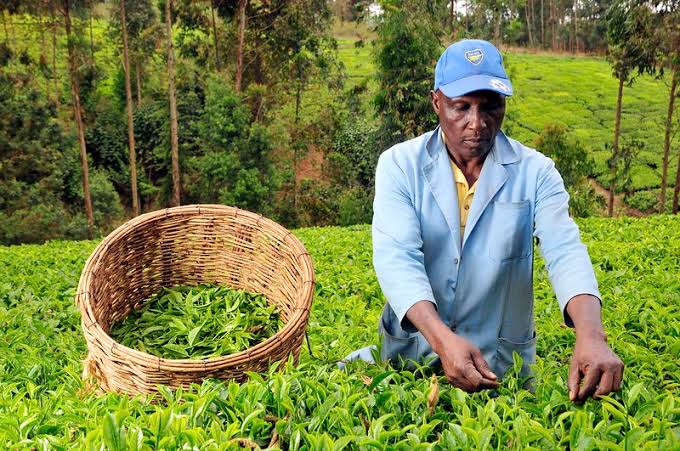
Faith Nyasuguta
Kenya, often celebrated as a global hub for producing some of the world’s finest teas, finds itself in a paradox where its citizens rarely get to savor the premium quality tea it exports prolifically.
Statistics show that Kenya consistently ranks among the world’s leading tea producers, competing with countries like China and India.
This apparent contradiction invites scrutiny into the nation’s priorities, highlighting a tendency to favor foreign markets over ensuring the local populace enjoys the exceptional teas grown on its soil.
At the heart of Kenya’s tea narrative is the undeniable export dominance. Approximately 95% of the tea produced in Kenya is destined for foreign markets, leaving a mere 5% for local consumption.
This staggering disparity underscores the challenge: the very nation recognized for cultivating exceptional teas provides limited access to its citizens.
While the emphasis on tea exports significantly contributes to Kenya’s economic prosperity, questions arise about the social and cultural implications of prioritizing global markets.
The tea industry consistently ranks as one of Kenya’s top foreign exchange earners, playing a pivotal role in sustaining economic stability. The reliance on exports has positioned Kenya as a major player in the global tea market.
A critical aspect of this paradox is the discernible quality gap between teas designated for export and those available for local consumption. Teas bound for international markets undergo rigorous quality checks to meet stringent global standards. Consequently, these exported teas often surpass the quality parameters of those accessible to local consumers.
The irony lies in Kenyans cultivating and producing some of the best teas globally yet not enjoying the pinnacle of their tea’s quality.
Beyond the immediate economic gains from exports, there’s a need to assess the long-term impact on the local tea industry. The disproportionate focus on exports may inadvertently impede the growth and innovation of the domestic tea sector.
A more balanced approach that integrates global markets and caters to local preferences could foster job creation, industry expansion, and contribute holistically to the nation’s development.
Crucial to unraveling this complexity is a deep dive into the preferences of local tea consumers. Surveys and studies consistently indicate a desire among Kenyan tea drinkers for higher-quality teas. If the market were more responsive to these local preferences, there’s potential for a significant uptick in domestic tea consumption.
Government policies wield considerable influence in shaping the dynamics of the tea industry. Analyzing existing policies and exploring strategic adjustments could pave the way for a more equitable distribution of premium teas.
A nuanced approach that aligns with both global export objectives and the desire to elevate the local tea experience can be a catalyst for positive change.
In addressing the disparities in tea consumption, Kenya stands at a crossroads with an opportunity to redefine its tea narrative.
A strategic shift that balances global exports with local enjoyment holds the potential for transformative outcomes. It not only promotes economic growth but also enhances the local tea experience, solidifying Kenya’s position as a tea powerhouse that values and prioritizes its citizens.

Beyond the traditional export-oriented model, there’s room for diversification in the tea industry. Exploring avenues for value addition, such as specialty teas and boutique blends, can tap into niche markets globally while simultaneously catering to the evolving tastes of the local populace.
Tea is not merely a commodity; it is deeply intertwined with culture, rituals, and social interactions. Recognizing the cultural significance of tea within the Kenyan context emphasizes the need for a more inclusive approach that ensures all citizens can partake in the cultural heritage embedded in each cup.
Kenya possesses the unique opportunity to orchestrate a harmonious symphony between global market dynamics and local cultural richness. A recalibration of policies, market strategies, and industry focus can create a win-win situation, where both export objectives and local aspirations are met.
It is time for Kenya to take pride in not just being a global tea supplier but also in providing its citizens the chance to savor the very best of what they cultivate.
RELATED:




